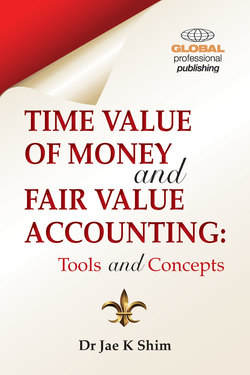Читать книгу Time Value of Money and Fair Value Accounting - Dr Jae K Shim - Страница 6
На сайте Литреса книга снята с продажи.
ОглавлениеPreface
Fair values are more common in financial reports because fair values have increased in business importance in recent years. Increasingly elaborate financial instruments and risk management practices have created financial statement elements for which historical cost is almost irrelevant, and fair value, and fluctuations in fair value, are extremely relevant.
According to the FASB’s recent guidance on fair value measurements ASC820-10-5 (FAS-157, Fair Value Measurements), Level 3 hierarchy accepts fair values estimates based on present value of expected future cash flows. Furthermore, CPAs must have a working knowledge of the time value of money (future value and present value concepts) because of their application to numerous types of business events and transactions which require proper valuation and presentation.
Time value of money is also a critical consideration in financial and investment decisions. For example, compound interest calculations are needed to determine future sums of money resulting from an investment. Discounting is used to evaluate the future cash flow associated with capital budgeting projects. This book aims at presenting the time value tools and techniques that are necessary for fair value measurements and for various financial decision making. Furthermore, this book is a comprehensive survey of fair value accounting with a discussion of : (1) ASC 820, Fair Value Measurements and Disclosures, (2) A list of the financial statement items for which fair value reporting is required or allowed. (3) A variety of valuation models, and (4) Fair value disclosure requirements.
